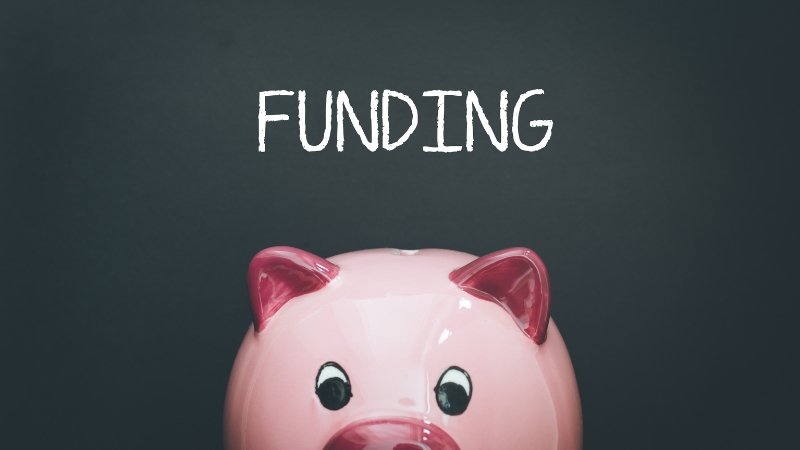Categories
Government Start Up Loans

One of the questions that many people considering starting a new business ask is: ‘what financial help is there?’
Thankfully, the answer to that is: ‘lots’.
In the UK, one of the first places people might like to consider looking is to the government itself, in the form of government start up loans.
For more than a decade, the UK government start up loans system has provided money to new businesses to get off the ground.
It’s an excellent value loan: up to £25,000 per applicant, with an interest rate set at 6%, and it can be really useful as a first business loan.
With this and other financing options, achieving the dream of running a UK business is in your grasp.
In this guide, we cover who is eligible for the government start up loan scheme, how to apply, and what alternative methods of funding for start ups are out there, from regular business loans, to grants and asset finance facilities.
Table of Contents
Who is Eligible for a Government Start Up Loan?
What Can They Be Used For?
Key Details of the Loan
What Do I Need for a Government Start Up Loan?
6 Alternatives to the Government Start Up Loan
Who is Eligible for a Government Start Up Loan?
In essence, there are two main criteria for getting a government start up loan:
- Is your business a UK business?
- Has your business been trading for three years or less (it’s a start up)?
While the specific questions asked are a little more in-depth, the only exact criteria are that: your business will be based in the UK, you are a UK resident, and your business meets the definition of a 'start up'.
This means that most UK citizens are eligible.
Excluded Businesses
For various reasons, the government start up loan cannot be used to start up businesses in chemical manufacture or weaponry; the adult arenas of pornography or gambling; nor financial sectors such as banking, money transfer, or property investment.
Additionally, you cannot use a government start up loan to begin a charity or as a third-party agent for another business.
Don’t let that put you off, however - many alternative funding options exist for businesses not eligible for the government start up loan.
What Can Government Start Up Loans Be Used For?
One of the great things that differentiates a loan from a grant is its flexibility.
Unlike many of the grants offered by the UK government that come with strict usage rules, the start up loan is there for you to use on a far wider range of things.
While it is not quite an unrestricted loan (you can’t use it to pay off your gambling debts!), in business terms, the cash is there for you to apply in multiple ways.
Defined as a loan used to find the initial cost of starting and developing a business, you can use a government start up loan to do the following:

1. Fund set up costs - Getting your business going will mean you may need to invest in equipment, machinery, stock, marketing materials, specialist software, and more.

2. Secure a property - A government start up loan will be enough for you to rent and kit out your first premises - or even use to help obtain property as an investment.

3. Get your brand known - PR and marketing are key areas for new businesses to build their customer base. Logo design, website creation, and those all-important branding ideas can all be covered.

4. Provide cash flow capital - Having cash in the bank to pay bills is essential, especially as a small business dealing with invoicing terms and other payment delays. The start up loan ensures you have the money to cover your costs in the early days.
What can’t you do? Any of the following:
- Repay other debts - The government start up loan cannot be used as a refinancing option.
- Training and education - Any training or qualification programs are also excluded.
- Investment opportunities - The loan is for your use to start up a company, not to invest in others as a third party.
Key Details of the Government Start Up Loan
Loan Structure
It is easily misunderstood, given the name, that the government start up loans come directly from the UK government and that your business will be repaying them directly. This is not the case.
It is an unsecured loan that is offered based on your personal credit score. If your credit history is poor then you may be unsuccessful in your application.
As an unsecured loan, there is no requirement for collateral - your home and other assets are not at risk; however, failure to make repayments will result in legal debt recovery undertakings.
Loan Value
You can personally borrow between £500 and £25,000 (the average loan amount is £9,295). As it is a personal loan, a business with multiple partners can be used for up to four government start up loans of £25,000 each, allowing for a maximum of £100,000.
Interest and Repayment
The loan has a fixed interest rate of 6% p.a. with repayments due monthly on one-year to five-year terms.
There are no fees for application or loan set up administration.
As an illustration, the following represents the monthly repayments and interest accrued on various loan sizes:
Example Government Start Up Loan Repayments
|
Size of Loan |
Length of Term |
Monthly Repayment |
Interest |
Total Repayment |
|
£5,000 |
18 months |
£291.16 |
£240.86 |
£5,240.86 |
|
£10,000 |
24 months |
£443.21 |
£636.95 |
£10,636.95 |
|
£15,000 |
40 months |
£414.68 |
£1,587.31 |
£16,587.31 |
|
£20,000 |
60 months |
£386.66 |
£3,199.36 |
£23,199.36 |
|
£25,000 |
60 months |
£483.32 |
£3,999.20 |
£28,999.20 |
Additional Support
As the loan is designed to help UK entrepreneurs build a successful business, a support structure has been developed to further enhance the scheme.
Support also exists to help with the application process, including advice on creating cash forecasts and business plans.
Second Loans
It is possible to apply for a second loan under the government start up loan scheme. If you can show good growth and reliable, regular repayments on your primary loan, applications for a second loan are available.
This can provide additional funding to those who are looking to expand their business.
What Do I Need for a Government Start Up Loan?
Like with any loan application for a start up business, documentation that shows your personal credibility and business idea is essential. For a government start up loan this takes the form of the following specific documents:
The Business Plan
The very key to obtaining business finance, the business plan is the most important document you will write! In it, you should outline your business idea, including all the research you have done that proves your concept.
The business plan is the place where you sell your business idea to those responsible for making your loan decision, so getting it right is vital.
However, don’t panic - help is available. Part of the support of the government start up loan includes online templates and guides to creating your business plan, and you can speak to an advisor if it becomes too much.
The Cash Flow Forecast
Your cash flow forecast is a detailed spreadsheet that shows the expected income and outgoings of your business. This is where you show that your business has true financial viability.
A Personal Survival Budget
Specific to the government start up loan scheme, the personal survival budget details your personal finances and shows how you will cope with your own financial responsibilities while starting up your business.
Personal Bank Statements
Three months’ worth of your banking history shows your trustworthiness and financial sense leading up to the application.
6 Alternatives to the Government Start Up Loan
While the government start up loan provides an excellent option for initial funding, there are many ways to access capital for your fledgling business that may be more suitable for your specific need. These include:
1. Unsecured Business Loans
Similar to the government start up loans in structure, a third-party unsecured business loan may be more suitable to obtain larger amounts of capital or for more unrestricted loan terms and conditions.
2. Secured (Asset-Based) Business Loans
If you have assets to use as collateral then a secured loan can offer a superior rate of interest, access to greater capital, and more flexible terms. Also referred to as asset based finance.
3. Grants
The idea of “free” money is extremely appealing. Grants offer capital with no repayment but can be quite specific in terms of application process and end use.
4. Investment
Outside investment (venture capital) is a favoured way to obtain start up financing for many entrepreneurs. Armed with a strong business plan, investment capital can come with a host of other benefits in exchange for equity in your business.
5. Crowdfunding
Many businesses succeed in getting off the ground thanks to internet-based crowdfunding, where a good marketing strategy can reap rewards.
6. Asset Finance
If the majority of your start up costs are in the acquisition of assets, such as vehicles, specialised equipment, or machinery, then asset finance may offer a superior alternative. With a range of options to fit both long- and short-term plans, asset finance offers access to equipment that may otherwise seem out of reach.
For more in-depth understanding of these ways to gain start up capital and how it relates to your business plan, why not speak to an advisor at Clifton Private Finance today.













.png)

